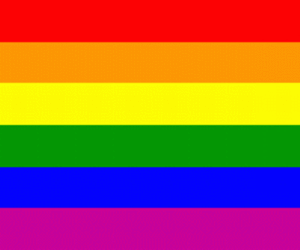Cuba’s Gay Population Is Itself Responsible
- Submitted by: lena campos
- Society
- 12 / 13 / 2012

The current session of the Cuban parliament is ending and the issue of the extension of rights to people with sexual orientations that are not heterosexual has again been left off the island’s legislative agenda.
Though outraged, I’m really not too surprised given the lack of autonomy of the Cuban Parliament. It is subject to the decisions of the Communist Party, making it impossible for such initiatives to be openly debated and for any consensus to be reached.
The democratic deficit that the nation has suffered for decades cannot bear more of this type of arbitrary behavior. This is why I think it’s going to be very difficult to transform the situation of the vulnerability suffered by LGBT individuals and families if we don’t first transform the mechanisms of the political structure and the government.
Of course it’s not possible to expect these changes to take place first and then for us to demand respect for our rights. These changes won’t occur “by the power of the Holy Spirit” but through social action and the pressures that can be exercised in the civil society of which we’re an active part.
The violations committed during the recent Census of the Population and Housing against LGBT households and families unequivocally signaled the Cuban government’s unwillingness to include the changes that our society requires. These occurred despite the valuable items discussed during the last Congress of the Cuban Communist Party (PCC).
What are known here as “appropriate channels” have proved ineffective (or at least slow), therefore we urge the adoption of new approaches, while not compromising the existing ones.
The pioneering work of CENESEX could be enriched with the coordination of horizontal autonomous and independent initiatives that are unencumbered by “state institutions.” These could transparently present demands regarding the shortfalls and failures of legislative bodies.
The statement by the group HxD this past May 12 was exemplary in this regard. They called for “discussion and approval by the appropriate government authorities of the projects of the new Family Code, an executive order on gender identity and any other legal rulings that progressively incorporate other rights, including all possibilities for unions between same-sex couples, including marriage for those who wish, adoption and reproductive rights for homosexuals.”
On the other hand, the annual “campaign of struggle against homophobia” could also accommodate critical debates about their own efforts, which would be a chance to invigorate their policies and procedures. However, as emerging collectives — without giving up our support for and contribution at this time to the national coalescing around this issue — we should not limit ourselves to simply waiting.
The new legislature, that takes office next year, must again be “made literate” concerning these issues. This means more hard work on top of what was carried out over the past five years in the hope that the legislature would finally approve the new Family Code, bogged down for years in the bureaucratic intricacies of the National Assembly and in other state institutions.
It is essential to broadly and widely advocate the contents of the legislative proposal so that people can see how much they would gain with its approval, especially given that this includes many other modifications in support of women, for example, and families in general.
Without popular support this will be impossible. If we insist on reasserting an elitist model, where the “experts” decide behind the backs of those who are involved — not matter how just the proposal might be — this would in itself bear the seeds of authoritarianism and the false democracy that neoliberal models try to sell us.
Therefore such “literacy” cannot be strictly informative and it should have a strong component of political pressure.
Our representatives must be accountable to Cubans who are gay, and gay Cubans have the responsibility to demand that accountability. We must demand respect for our human condition.
To do this, it is essential to form a critical LGBT community that is conscious of its needs, which doesn’t exist today. Nor, of course, can this awareness be created by decree.
One possible path to achieving this could be:
- Systematizing our activism work.
- Spreading the valuable intellectual findings that have been generated in recent decades and translating those ideas into tangible socio-cultural projects.
- Making the daily violations we suffer public through the press (state-run and independent), and directing these toward example-setting criminal legal actions.
- Focusing on what we lack rather than being complacent concerning battles that have already been won.
- Integrating our demands with other movements and people that are also seeking emancipation.
I’m sure that there remain other constructive ideas outside of these. An agenda that’s incomplete is always an agenda that’s open.
Source: Havana Times.org
Comments